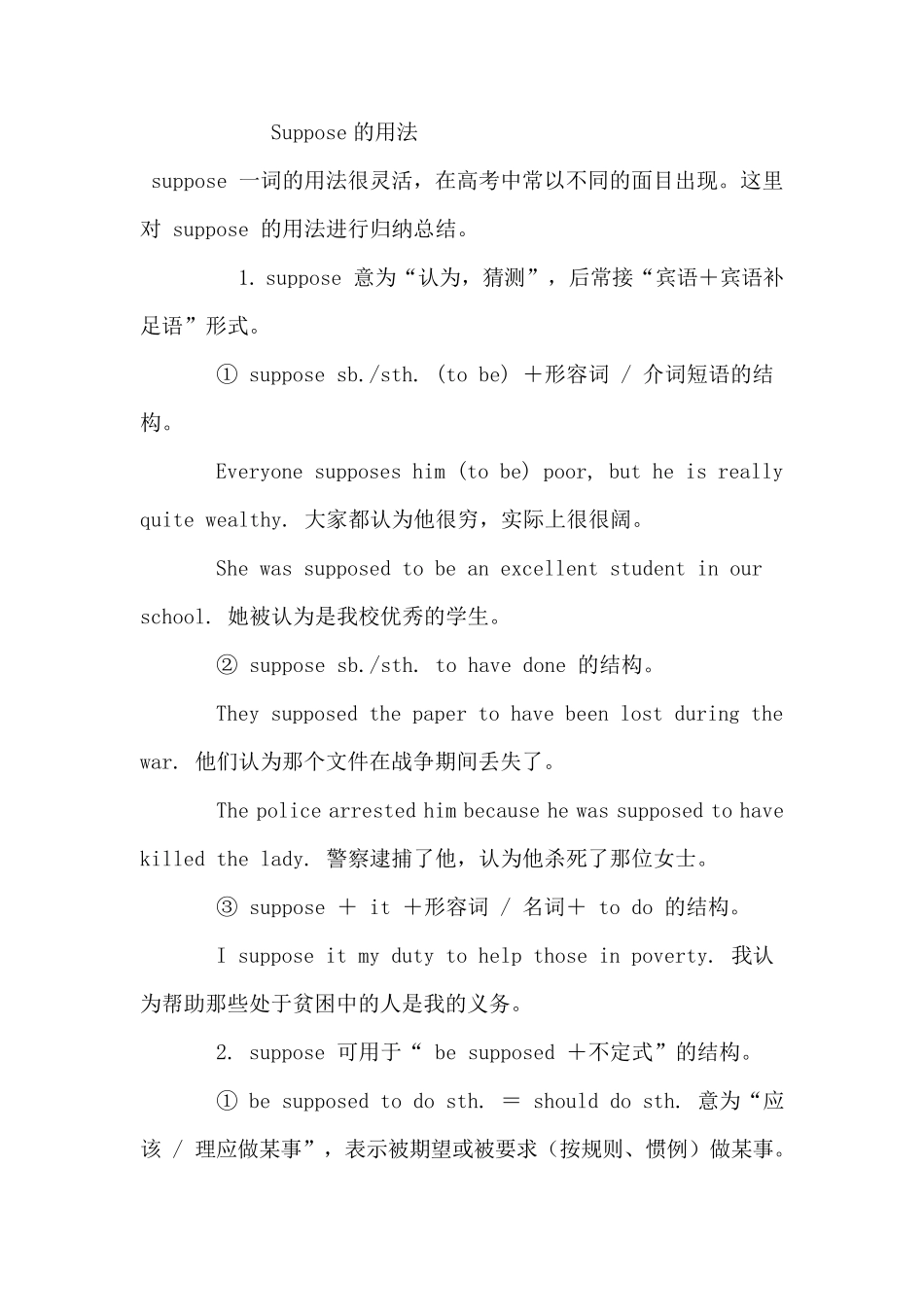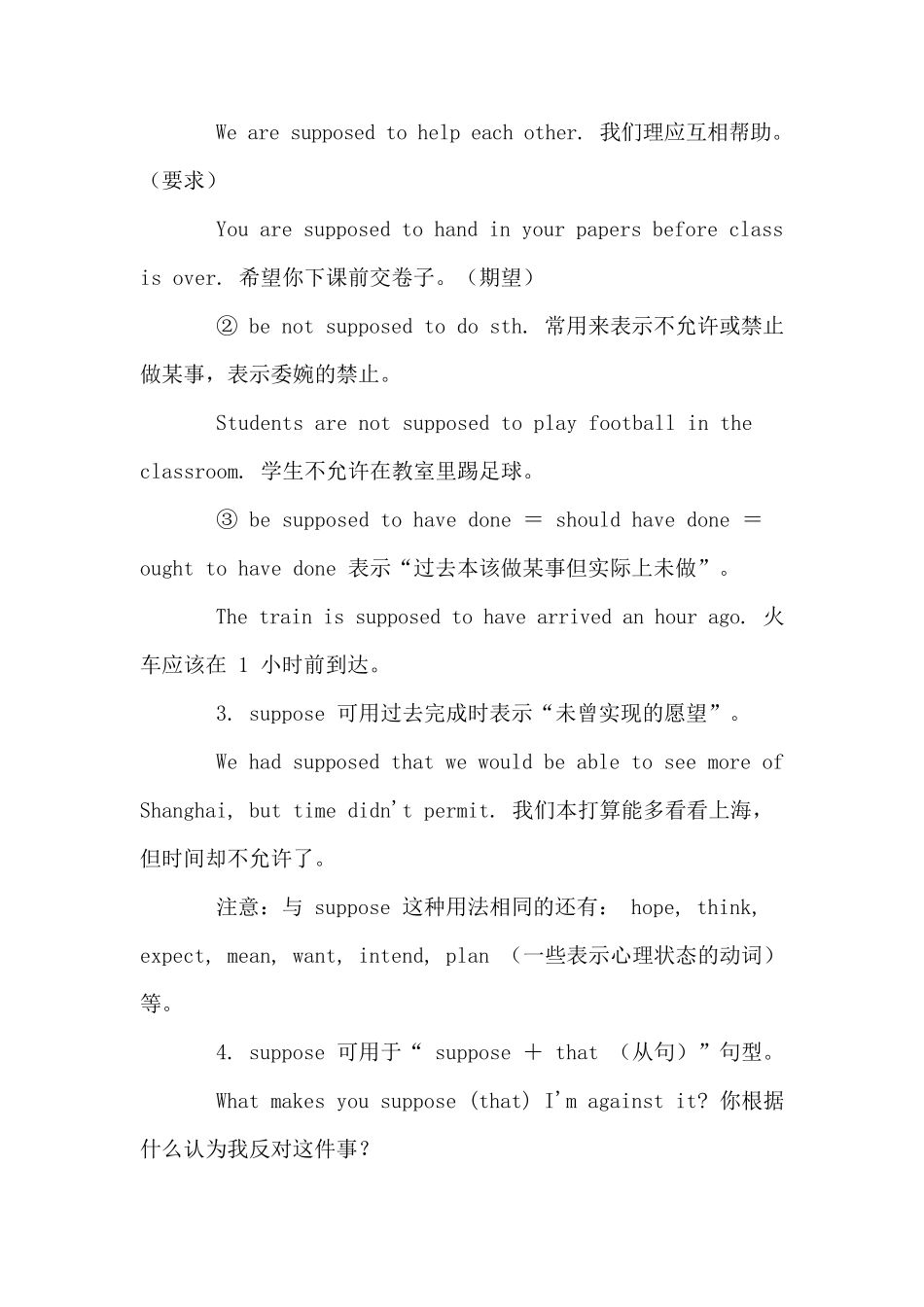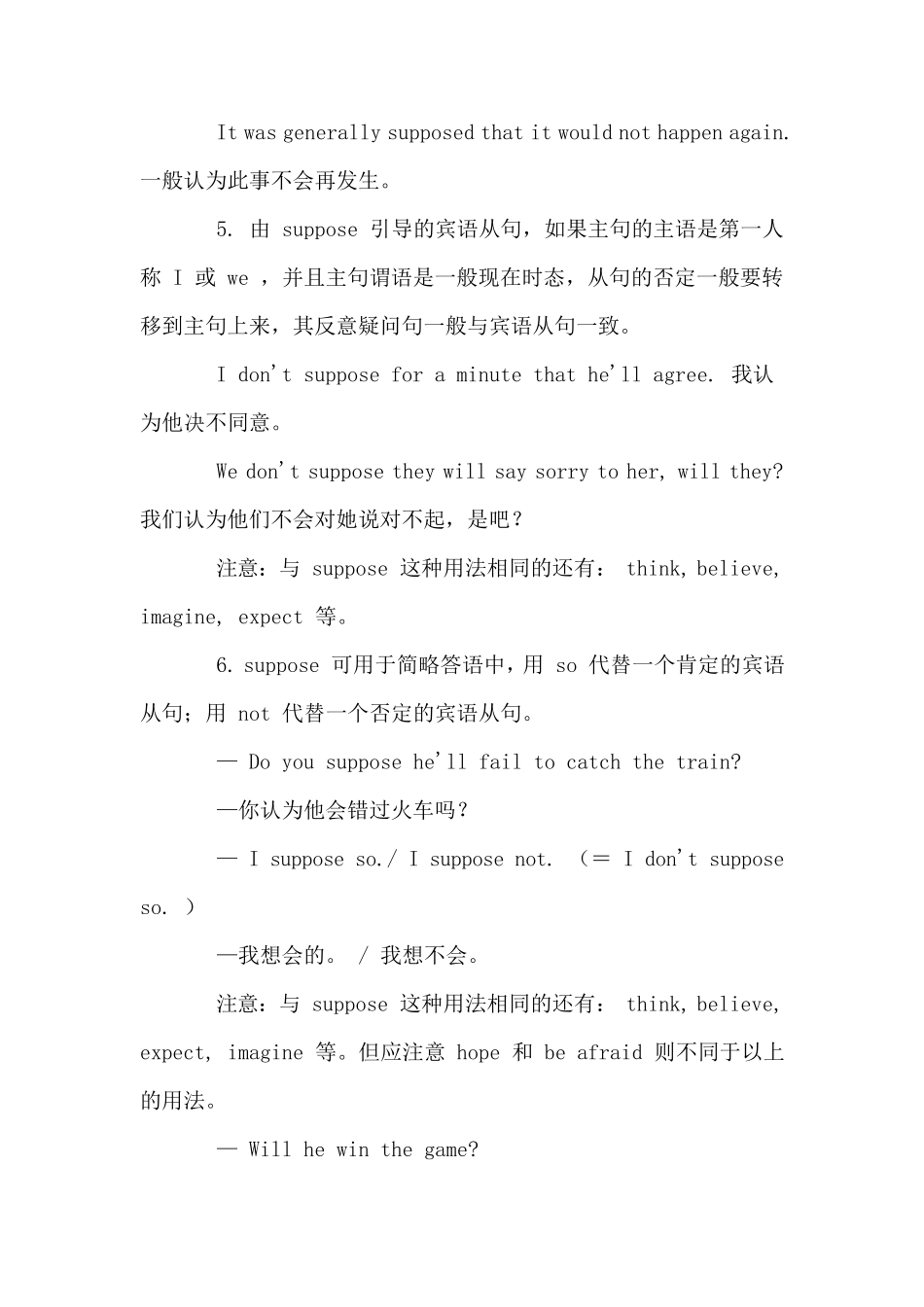Suppose 的用法 suppose 一词的用法很灵活,在高考中常以不同的面目出现。这里对 suppose 的用法进行归纳总结。 1. suppose 意为“认为,猜测”,后常接“宾语+宾语补足语”形式。 ① suppose sb./sth. (to be) +形容词 / 介词短语的结构。 Everyone supposes him (to be) poor, but he is really quite wealthy. 大家都认为他很穷,实际上很很阔。 She was supposed to be an excellent student in our school. 她被认为是我校优秀的学生。 ② suppose sb./sth. to have done 的结构。 They supposed the paper to have been lost during the war. 他们认为那个文件在战争期间丢失了。 The police arrested him because he was supposed to have killed the lady. 警察逮捕了他,认为他杀死了那位女士。 ③ suppose + it +形容词 / 名词+ to do 的结构。 I suppose it my duty to help those in poverty. 我认为帮助那些处于贫困中的人是我的义务。 2. suppose 可用于“ be supposed +不定式”的结构。 ① be supposed to do sth. = should do sth. 意为“应该 / 理应做某事”,表示被期望或被要求(按规则、惯例)做某事。 We are supposed to help each other. 我们理应互相帮助。(要求) You are supposed to hand in your papers before class is over. 希望你下课前交卷子。(期望) ② be not supposed to do sth. 常用来表示不允许或禁止做某事,表示委婉的禁止。 Students are not supposed to play football in the classroom. 学生不允许在教室里踢足球。 ③ be supposed to have done = should have done = ought to have done 表示“过去本该做某事但实际上未做”。 The train is supposed to have arrived an hour ago. 火车应该在 1 小时前到达。 3. suppose 可用过去完成时表示“未曾实现的愿望”。 We had supposed that we would be able to see more of Shanghai, but time didn't permit. 我们本打算能多看看上海,但时间却不允许了。 注意:与 suppose 这种用法相同的还有: hope, think, expect, mean, want, intend, plan (一些表示心理状态的动词)等。 4. suppose 可用于“ ...


